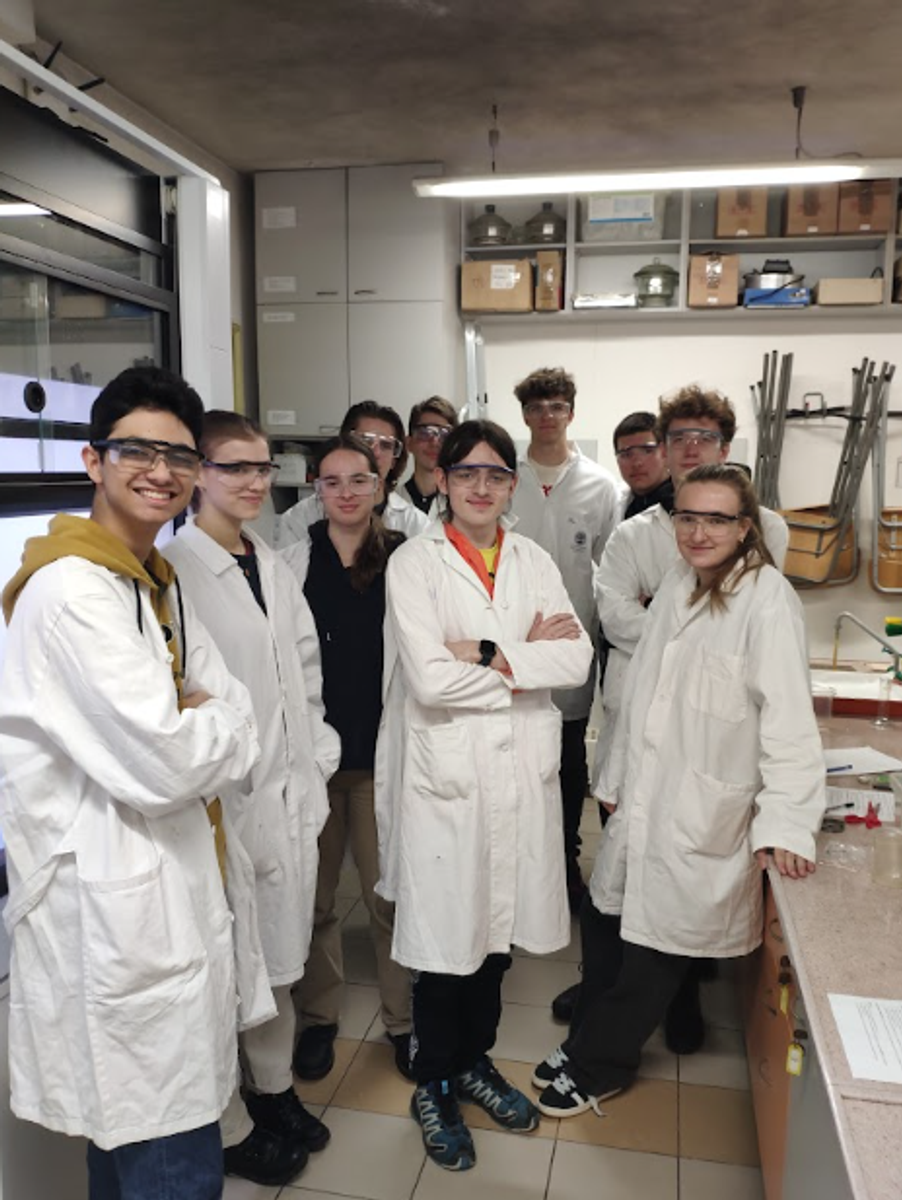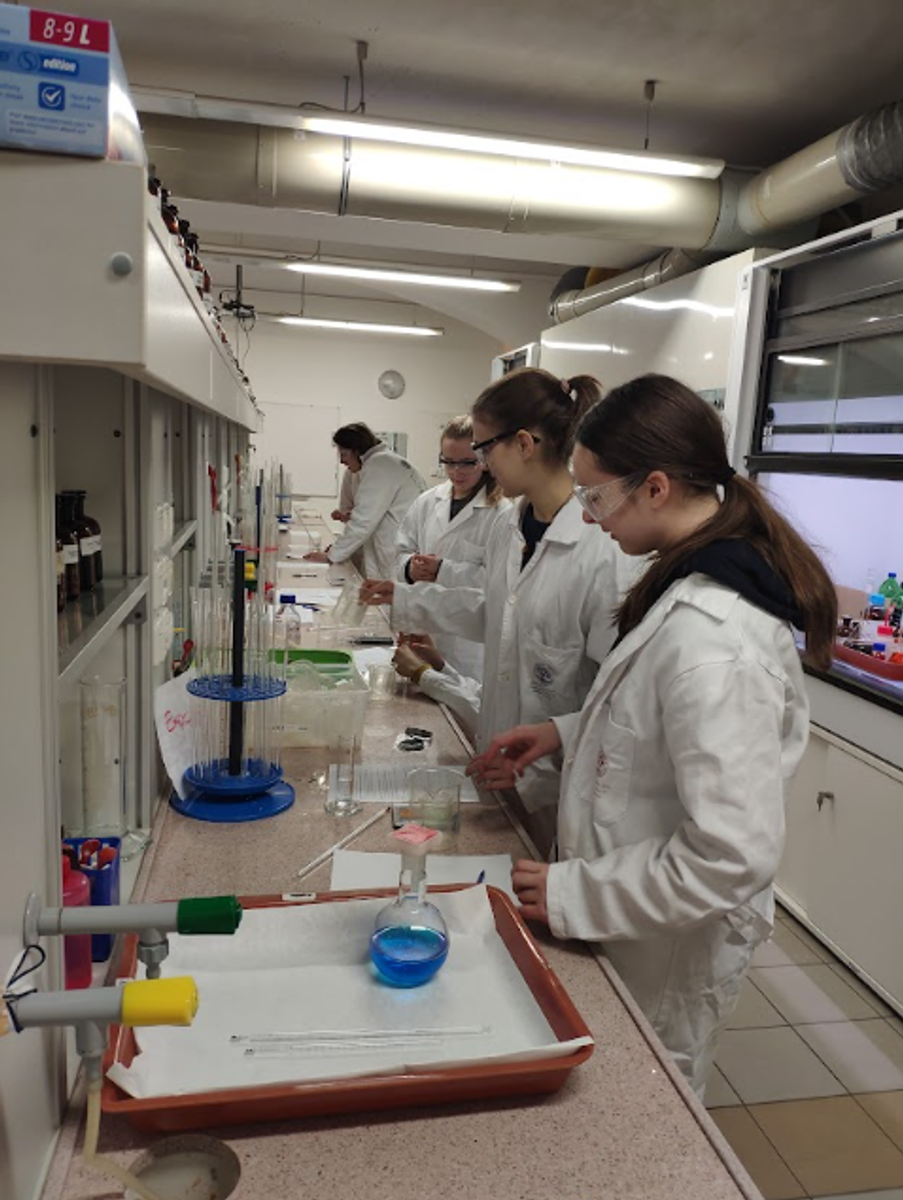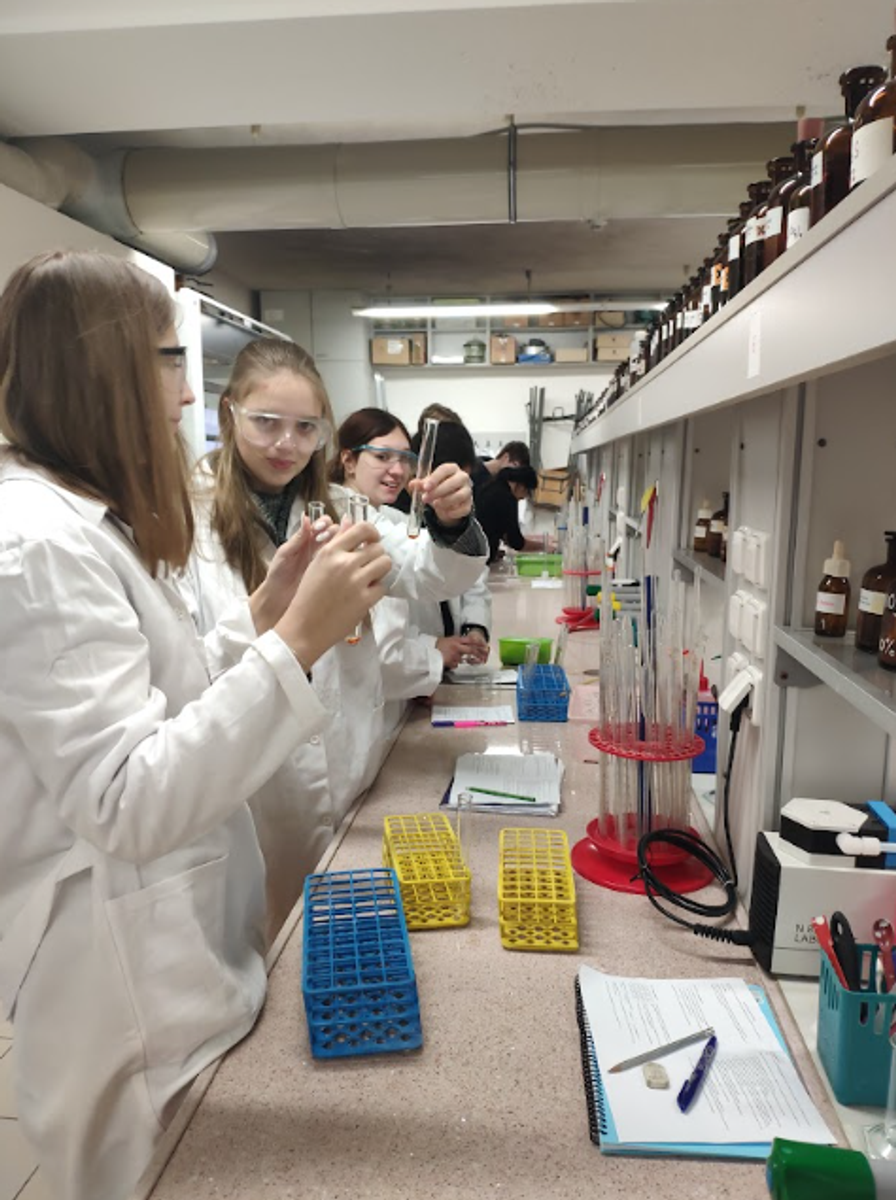Science/Přírodní vědy
Laboratory work

Science/Přírodní vědy
Laboratory work
In January Year 2, 5 and 6 students had the opportunity to carry out Biology and Chemistry practical work using a laboratory at Charles University.


It all started off with me spending a full day at the laboratory with IB students. In the morning, Year 6 Chemistry students explored a wide range of different small scale organic chemistry reactions that are part of the IB Chemistry course. In the afternoon, Year 5 students arrived to carry out some energetics practicals. This helped them complete some essential IB experiments and served as a familiarisation visit for them to get a feel for the lab before coming back a week later for the main event of completing experiments for their IB coursework.
Having full three days in a well equipped laboratory (the micropipettes were an especially handy timesaver) really gave students a great taste of what working as an independent researcher is like. They had to tinker and refine their initial methods, learning from every failure to ensure they could get suitable results. This was all made a little easier by not having to watch the clock and be ready to pack their stuff away at the end of a 55-minute period! A number of students remarked on how exhausting it was to be on their feet all day, providing another valuable taster for what work as a research scientist is like.
Students were surprised to find glassware carrying the label of made in Czechoslovakia - highlighting that good glassware will last a lifetime if it's looked after properly. A number of those pieces did sadly meet their demise though, providing students with another valuable lesson that some smashed glassware is inevitable.
In between all of this upper school Chemistry action, Mr Paterson, Ms Kerr, Mr McGrath and Ms Biro were supervising various other Biology and Chemistry students primarily from Year 2.
The people at the university were incredibly accommodating and helpful throughout the process. They were always willing to help us find things and were very patient when explaining how to use some of the electronic sensors we were using. I'm looking forward to our next round of sessions there in May.
Dr Athwal, Head of Science


V lednu měli studenti 2., 5. a 6. ročníku možnost provádět praktické experimenty z biologie a chemie v laboratoři Univerzity Karlovy.
Vše začalo tím, že jsem strávil celý den v laboratoři se studenty chemie v rámci programu IB. Dopoledne studenti 6. ročníku prozkoumali širokou škálu různých reakcí organické chemie v malém měřítku, které jsou součástí kurzu IB chemie. Odpoledne přijeli studenti 5. ročníku a provedli praktické práce zaměřené na energetiku, což jim pomohlo dokončit některé základní experimenty IB a posloužilo jim to jako seznamovací návštěva, při níž si osvojili zkušenosti s laboratoří, kam se o týden později vrátili na svůj hlavní program, což bylo dokončení experimentů požadovaných v kurzu IB chemie.


Po celých třech dnech strávených v dobře vybavené laboratoři (mikropipety poskytly obzvláště šikovnou úsporou času) si studenti skutečně mohli vyzkoušet, jaká je práce nezávislého výzkumníka. Museli zdokonalit a vylepšit své počáteční metody a poučit se z každé chyby, aby zajistili, že dosáhnou patřičných výsledků. Bylo to o něco snazší i díky tomu, že nemuseli hlídat hodiny, aby bylo vše zabaleno a uklizeno na konci 55ti minutové hodiny. Řada studentů poznamenala, jak vyčerpávající bylo být v laboratoři celý den na nohou, což jim poskytlo další cennou ochutnávku toho, jaká je vlastně práce výzkumného vědce.
Studenti byli překvapeni, že používané sklo mělo nálepku made in Czechoslovakia – což potvrdilo, že dobré sklo vydrží na celý život, pokud se o něj správně staráte. Některé pomůcky však experimenty nepřečkaly, což přineslo studentům další cennou lekci o tom, že nějaké ty škody jsou při výzkumu nevyhnutelné.
Mezi všemi těmito aktivitami pro studenty IB chemie pak také tým přírodovědných učitelů - pan Paterson, paní Kerr, pan McGrath a paní Biro - dohlížel na další studenty biologie a chemie primárně z 2. ročníku.
Personál univerzity byl během celého procesu neuvěřitelně vstřícný a nápomocný. Vždy nám ochotně pomohli vše najít a byli velmi trpěliví, když vysvětlovali, jak používat některé elektronické senzory. Těším se na další kolo našich návštěv v květnu.
Dr. Athwal, vedoucí oddělení přírodních věd